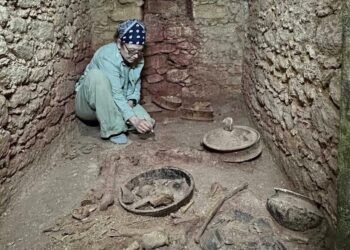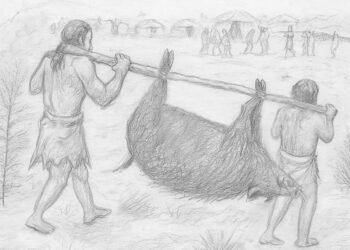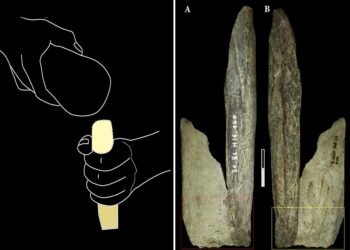Greece has officially reopened the ancient Palace of Aigai (Aegae), also known as the Royal Metropolis of the Macedonians, after a meticulous 16-year restoration process that cost over 20 million euros.

The historic site, where Alexander the Great was crowned King of Macedonia approximately 2,400 years ago, stands as a symbol of classical Greece’s grandeur and the pivotal moments in Alexander’s reign.
Built primarily in the 4th century BCE by Alexander the Great’s father, Philip II of Macedonia, the palace covers an expansive area of around 15,000 square meters, making it the largest building in classical Greece.
Greek Prime Minister Kyriakos Mitsotakis, who presided over the opening ceremony, said: “It is the place where Alexander the Great was crowned king, a short while after his father’s assassination, to start his glorious campaign.”
The coronation of Alexander marked the beginning of his remarkable military campaigns, which saw him conquer vast territories, stretching from modern-day Greece to Egypt, Iran, northern India, and central Asia.
His empire, unprecedented in Western history, initiated the Hellenistic period, lasting from his death to the rise of the Roman Empire. This era laid the foundation for Greek influence in the eastern Mediterranean for the next 1,000 years, with many important texts, including early versions of the New Testament, written in Greek.
Despite its historical prominence, the Palace of Aigai faced adversity, enduring destruction by the Romans in 148 BCE and subsequent years of looting. The extensive restoration efforts included excavation, documentation, and conservation of artifacts.
The Greek government, with support from the European Union, meticulously restored 1,400 square meters of mosaics, marble flooring, and columns while preserving the overall appearance of the ruins.
Prime Minister Mitsotakis acknowledged the global importance of the restoration, stating, “What we are doing today is an event of global importance and international scope.” He highlighted the responsibility of custodians to protect and promote such monuments, emphasizing their universal value that transcends local boundaries and becomes part of humanity’s shared cultural heritage.
The prime minister’s sentiments were echoed by CNN, where Mitsotakis stated, “The importance of such monuments transcends local boundaries, becoming the property of all humanity. And we, as the custodians of this precious cultural heritage, we must protect it, highlight it, promote it, and at the same time expand the horizons revealed by each new facet.”
The reopening of the Palace of Aigai allows visitors to witness the enduring legacy of Alexander the Great and experience the rich cultural heritage of ancient Greece. While specific details about booking tours remain unclear, the significance of this momentous occasion cannot be understated.

























I enjoyed the articles on Tenea and Teotihuacan. Do you publish a print journal?
I would like nore information on these sites and the scientists who excavate and publish findings.
Prof Sophia Kugeares
Dear Prof. Kugeares
Thank you for your appreciation of our articles on Tenea and Teotihuacan. Currently, we are exclusively an online magazine and do not publish a printed version. However, you can explore more content and information on these topics by using tags, or by searching keywords in our search bar. Feel free to reach out if you have any specific questions or if there’s anything else we can assist you with.